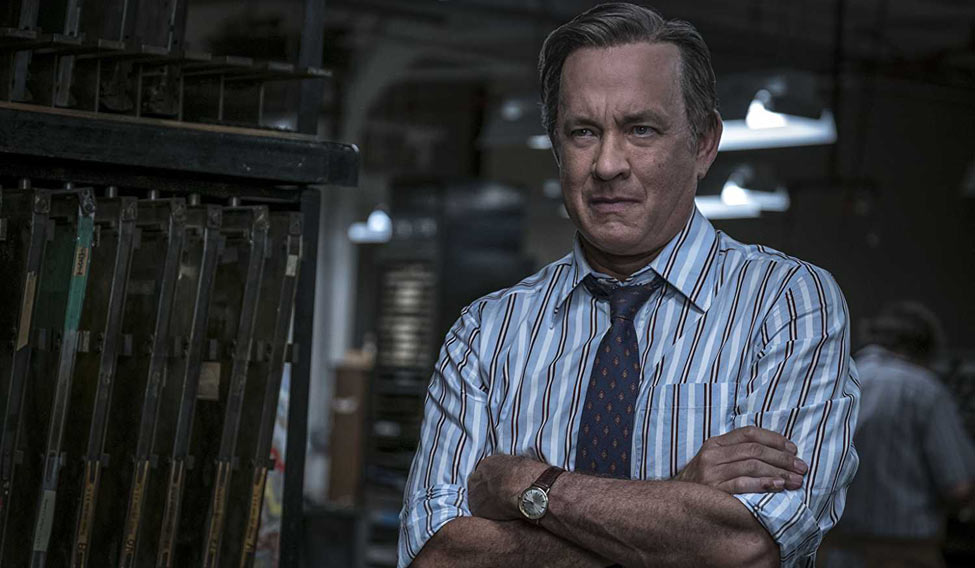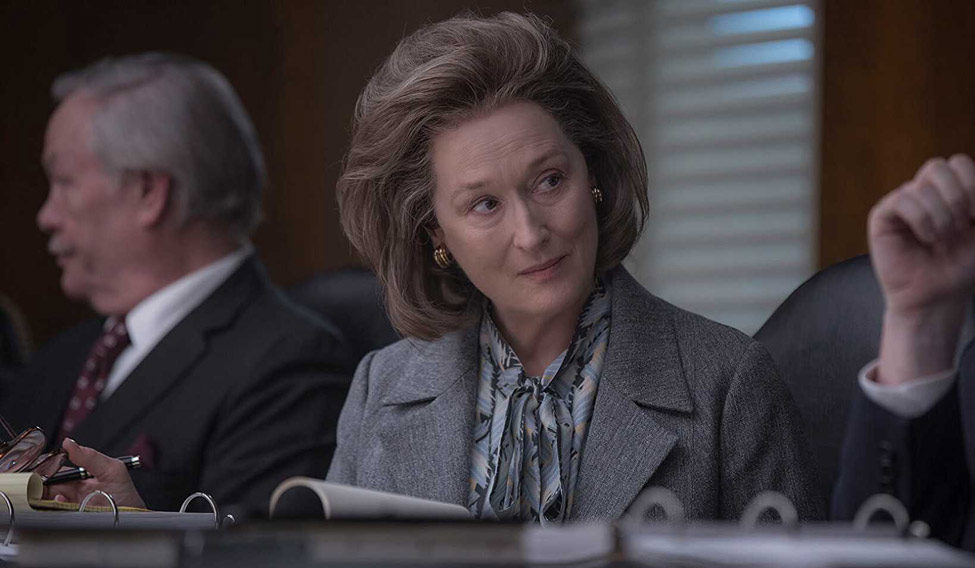One of the most poignant moments in Steven Spielberg's latest The Post is when Katherine Graham (Meryl Streep), the publisher of the Washington Post, engages in a conversation with her daughter, Lally Weymouth (Alison Brie), as the former is set to take over the newspaper's reins after the suicide of her husband Phil Graham in 1963. The young daughter encourages her not to be afraid. She wrote a note for her mother on a piece of paper, putting together many points of rebuttal for her detractors. But the latter were a group of men, who took every opportunity to make her feel like a woman who was not decisive enough. But Katherine, the inheritor of the famed Post, was ready to prove herself over and over―a woman fighting her battles alone in a man’s world.
The Post is primarily a film about one of the landmark moments in American journalism―the reportage of the Pentagon Papers in 1971. But it also turns out to be equally about the life of women, always judged, in a position of authority.
And thanks to her nuanced performance, Streep doesn't just show Katherine’s vulnerability while she is trying to make tough decisions, but also an innate strength. As the name signifies, the movie’s focal point is Washington Post and its fight to preserve courageous journalism. Its main theme is the freedom of the press.
While it explores the issue beautifully and makes a strong statement at a time when the freedom of press is under threat, it also delves deeper into the dynamics between a publisher and an editor―the role of the legal department in the decision-making while going ahead with a controversial subject, nuances of reporting, and most importantly the transformation of Washington Post from a local newspaper to a voice that exposed the American government and the part it played in the 1966 Vietnam War.That is where the film opens, in 1966.
Daniel Ellesberg (Mathew Rhys), a military analyst working for RAND Corporations, decides to be a whistle-blower. He discreetly makes copies of military documents over three months. The 7,000 pages are passed on to The New York Times, which publishes it, but faces a ban. The Post manages to procure it too. But should it go ahead and publish it? It may end up facing the wrath of the government. We know what would happen. We are aware of the decision. But Spielberg's build-up to the decision is riveting enough to keep one hooked till the end.
The director collaborates with writers Liz Hannah and Josh Singer (who also co-wrote Spotlight) to tell the story of a press coverage that revealed the involvement of the US government in the war for the first time. Equally amazing are the performances. Tom Hanks, essaying the executive editor Ben Bradlee, is at an effortless ease.

The only goal of the righteous Ben, like its publisher Katherine, is making Washington Post a newspaper that stands out. But their visions are different. Some of the better scenes in the movie are also the ones where they disagree with each other most of the time (also giving some chuckle-worthy moments), until a big decision―whether to publish the Vietnam War papers―hangs over their heads. Ben wants to go ahead.
But there are a lot of ifs and buts―the legal team warns Katherine of its consequences. She is also socially intimate with a lot of government officials, and would risk too much if she goes ahead. The scene in which she greenlights the story is very complex. Four people are in conversation on four different telephone lines. Spielberg's expertise in introducing drama in the plot is precise. Unlike earlier times, when Ben is upfront with his decision, mostly making a forceful appeal, this time he is swayed by uncertainties.
While parallely working with his team of reporters in his personal library, going through the chaotic, unnumbered set of papers he wants Katherine to make her own decision. And she does. The Post tells an important story from history, of the ethics of journalism and political play, the role of a free press and how press should “serve the governed and not the government”.
Film: The Post
Director: Steven Spielberg
Cast: Meryl Streep, Tom Hanks, Bob Odenkirk, Mathew Rhys, Tracy Letts
Rating: 4 stars







